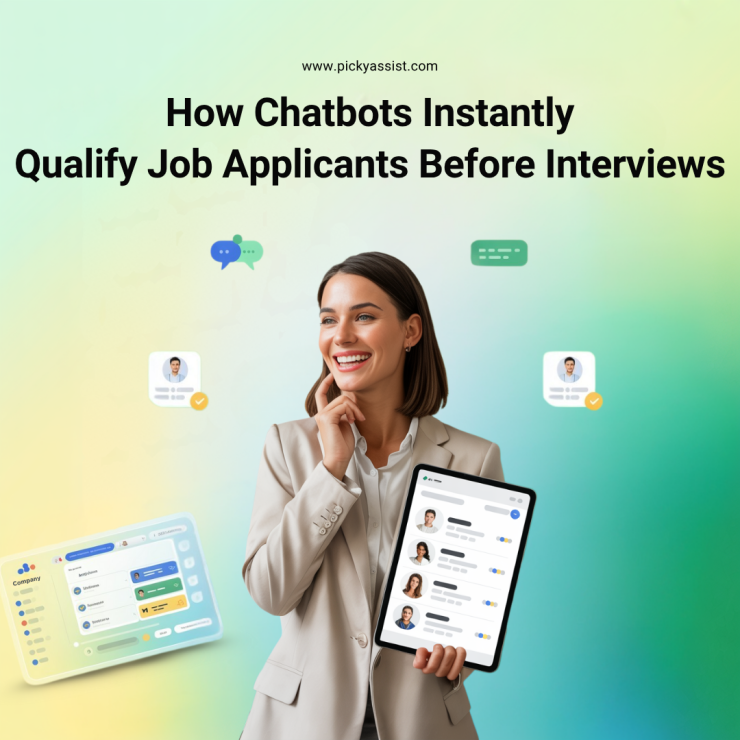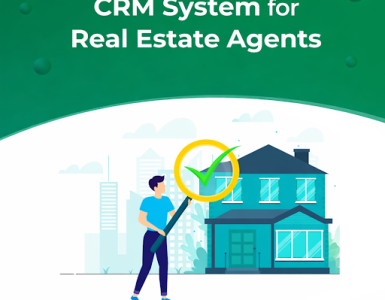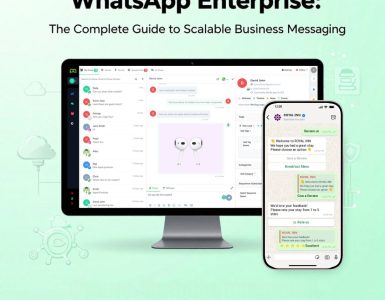Chatbots for recruitment have become indispensable tools for organisations looking to streamline their hiring processes. These AI-powered assistants are not just about automating responses, they actively engage with candidates, providing a personalised, interactive experience that feels natural and human-like. Beyond answering queries, they play a pivotal role in qualifying applicants before interviews, ensuring that only the most suitable candidates progress to the next stage.
By handling the initial stages of recruitment; such as screening resumes, assessing skill sets, and evaluating cultural fit, recruitment chatbots free HR teams from repetitive administrative tasks. This not only saves time but also reduces unconscious bias in candidate evaluation, promotes fairness, and allows human recruiters to focus on building relationships with high-potential talent. In essence, AI chatbots act as a first line of engagement, offering a seamless, consistent, and efficient way to connect with job seekers while improving the overall candidate experience.
What Are Chatbots for Recruitment?
In the hiring Process, Chatbots for recruitment are AI-driven tools designed to interact with job candidates through messaging platforms. They can handle various tasks, including answering frequently asked questions, scheduling interviews, and, crucially, qualifying candidates by assessing their skills, experience, and cultural fit. By automating these initial stages, chatbots free up human recruiters to focus on more strategic aspects of hiring.
Types of Recruitment Chatbots
Rule-Based Chatbots
Follow pre-defined conversation flows and respond to specific keywords or options. Useful for simple FAQs and scheduling tasks.
AI-Powered Chatbots
Use natural language processing (NLP) to understand context and engage in more complex conversations. They can assess qualifications, experience, and even soft skills.
Hybrid Chatbots
Combine rule-based and AI capabilities for flexible interaction, often used in enterprise recruitment.
Voice-Enabled Chatbots
Emerging conversational AI recruiting tools can even interact with candidates using voice commands, particularly useful for high-volume call-center or customer service recruitment.
How Do Recruitment Chatbots Qualify Job Applicants Before Interviews?


1. Automated Screening
Recruitment chatbots initiate conversations with candidates, gathering essential information such as work experience, educational background, and skill sets. This data is then analyzed to determine if the candidate meets the basic requirements of the role. Also attachments on documents can be attached by candidates as chatbot enquiries.
2. Behavioral Assessments
Advanced chatbots employ natural language processing (NLP) to assess a candidate’s responses for behavioral cues. This helps in evaluating cultural fit and soft skills, which are often challenging to gauge through traditional resumes.
3. Skill Verification
Chatbots can then integrate with CRM platforms to record data for easy candidate sourcing. This ensures that candidates possess the necessary technical abilities before progressing further in the hiring process.
4. Real-Time Feedback
Candidates receive immediate feedback on their application status, which enhances their experience and keeps them engaged. This transparency can lead to higher candidate satisfaction and a positive employer brand image.
Benefits of Using Chatbots in Recruitment
- Efficiency: Automate repetitive tasks, allowing human recruiters to focus on high-value activities.
- Consistency: Ensure a standardized approach to candidate evaluation, reducing human bias.
- Scalability: Handle a large volume of applications simultaneously without compromising quality.
- Cost-Effective: Reduce the need for extensive human resources in the initial stages of recruitment.
Picky Assist platform and its Recruitment Chatbot
- No-Code WhatsApp Recruitment Bot: Build a bot to screen, schedule, and engage candidates.
- Smart Replies & Assessment Flows: Automatically respond to FAQs, gather candidate data, and run pre-interview assessments.
- Integration: Push candidate data to HRMS, CRM, or email platforms.
- Case Study Example: Companies using AI chatbots in recruitment with Picky Assist have reported up to 40% faster candidate screening and a 30% increase in qualified interview-ready candidates.
Challenges and Considerations when using Recruitment Chatbots
While chatbots for recruitment offer numerous advantages, organizations should be mindful of potential challenges:
- Over-Reliance on Automation: While automation can enhance efficiency, it’s essential to maintain a balance with human interaction to preserve the personal touch in recruitment.
- Data Privacy: Handling candidate data responsibly is crucial to comply with regulations and maintain trust.
- Integration: Ensuring that the AI chatbot integrates seamlessly with existing HR systems and platforms is vital for smooth operations.
Trends in Recruitment Chatbots
- Conversational AI in HR: Chatbots will evolve to conduct video interviews, sentiment analysis, and predictive hiring.
- AI-Driven Talent Sourcing: Bots can proactively search for passive candidates across job boards and social platforms.
- Employee Engagement Chatbots: Post-hiring, chatbots will play a bigger role in internal communication, training, and retention.
To Conclude
Chatbots for recruitment are revolutionizing the hiring process by automating the qualification of job applicants. By efficiently screening candidates, assessing their fit, and providing real-time feedback, these AI-powered tools enhance both the candidate experience and the efficiency of recruitment teams. As technology continues to advance, the role of chatbots in recruitment is set to expand, offering even more innovative solutions for talent acquisition.
FAQs on Chatbots for Recruitment
1. What is a recruitment chatbot?
A recruitment chatbot is an AI-powered tool designed to interact with job candidates, automating tasks such as answering questions, screening applicants, and scheduling interviews.
2. Which AI tool is best for recruitment?
The best AI tool for recruitment depends on specific organizational needs. However, platforms like Picky Assist offer customizable solutions that can be tailored to various recruitment processes.
3. What are the four types of chatbots?
The four main types of chatbots are:
- Rule-Based Chatbots: Follow predefined paths and respond based on specific commands.
- AI-Powered Chatbots: Use machine learning to understand and respond to user inputs.
- Hybrid Chatbots: Combine elements of both rule-based and AI-powered chatbots.
- Voice-Activated Chatbots: Interact with users through voice commands.
4. How is AI used in HR recruitment?
AI in HR recruitment is used for automating tasks such as resume screening, candidate engagement, and interview scheduling, thereby improving efficiency and reducing bias.
5. What is the role of chatbots in HR?
In HR, chatbots assist with various functions, including employee onboarding, answering HR-related queries, and collecting feedback, thereby enhancing employee engagement and streamlining HR processes.







Add comment